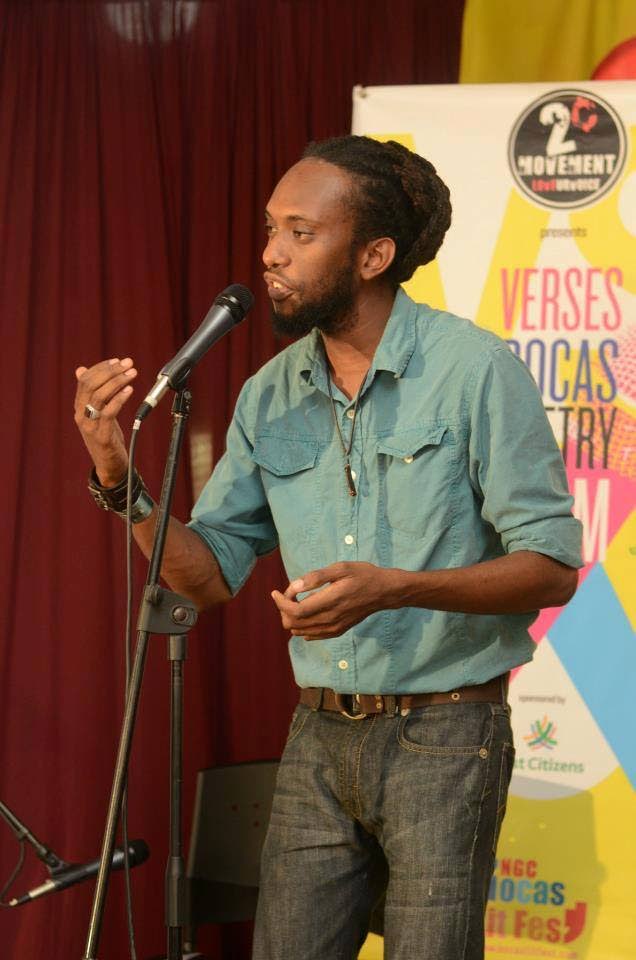Where calypso gone

Colin Robinson
There’s only one place in Trinidad to be at six o’clock tonight. For me, at least.
Listening to six young women and ten young men fill up NAPA’s 1,100-seat Lord Kitchener auditorium with their words, friends and followers, and go home with over $80,000 of First Citizens money.
I’m deeply invested in all of them. Indeed, the National Poetry Slam that culminates this evening is one of the most exciting investments in young people I’ve witnessed. It will have a repeated place in this column. This year, 150 competitors took part, with the innovation of auditions at January open mic activities in both Trinidad and Tobago: True Talk No Lie at Kaiso Blues Café in Newtown, Songshine at Trevor’s Edge in St Augustine, One Mic at the Black Pearl in San Fernando, and The Next Chapter at Edge of the Reef in Black Rock.
You may have missed the best of the slam, however. Semifinals performances are often the strongest, when competition is keenest with many poets pushed to offer their best work. But thanks to a strong social media presence by #FCNPS, you can see a dozen of those 40 gems from March online.
Already up on Facebook are five of the most powerful: a meditation on Black girls’ (un)attractiveness by Alexandra Stewart, an ode to the anthropomorphised microphone by Idrees Saleem, a critique of the emptiness of the spoken word by Marcus Abraham, an inhabitation of the insecure masculinity of the barbershop by Kyle Hernandez, and a lament of emotional death we beat into children by Marcus Millette. Hernandez and Stewart have placed in past competitions; Saleem won in 2014. Akile Wallace, a past champion who said he’d retire but came back when the prize money increased, will compete for it again this year, as will another second-place finisher, Brendon O’Brien. Defending her title is teenager from Tobago Camryn Bruno.
But any of the other half of the field, Carlon George, Deja Lewis, Dillon Mathison, Ahmad Muhammad, Davon Musgrave, Shineke Saunders, Jillian Smith, or Deneka Thomas, could win.
If you’re just getting hip to the slam, catch up. Online you can also watch Derron Sandy hosting 13 “episodes” of this season’s Slam Review. Sandy, turned 30, has moved from the finals to the role of artistic director of the 2Cents Movement, at eight years old, an amazing case study of a youth-led NGO. Besides the slam, 2Cents manages a suite of other youth programmes, several school-based, and increasingly focused on social justice and culture change.
I auditioned last year. Well, not really. I ended a two-part column last May on the importance of the slam and 2Cents as a movement NGO with “Next year, if no one asks me to judge, I’m competing.” And they did. On a judging panel that included calypso monarch Roderick “Chuck” Gordon, I got to feel the semifinal spit fly.
There’s one moment I want to recall. “Bussing” in spoken word is an art. And though you lose, you often enjoy a unique communion with the audience. Last year the audience patiently coaxed D’Izraiel Billy through several challenges to get to the end of her finals performance. This year, Kirby Moses outdid her, and won top points from me for stage presence after she converted her memory loss into an ex tempo conversation with the crowd. We brought her back to perform the piece at the end of the evening, without judging.
The spoken word final brings down the curtain on the annual NGC Bocas Lit Fest each year. It pulls an audience of hundreds into the festival. I organise an event that seems destined to become a staple on the festival’s first night. It pulls writers out of the festival to an audience in an LGBT bar. Janelle De Souza reviewed it Wednesday. This year, we celebrated the distance we’ve travelled in 20 years of Caribbean LGBT writing since a landmark New York City event Rosamond King and I organised, which exceeded our imagination, and seems the first major reading by Caribbean LGBT writers.
Three years ago, invited to join women’s, HIV and LGBT groups, and to deliver testimony—in spoken word—before the InterAmerican Commission on Human Rights at TT’s first thematic hearing in 15 years, the 2Cents Movement declined. The hearing advocated for HIV, sexual orientation and age to be protected from discrimination in the Equal Opportunity Act, and we wanted a poem to make the case for age. But the association was challenging.
This year, young spoken-word writers showed up at Wednesday’s event, filled the open mic slots, with one billed as a guest artist.
When people ask, Where calypso gone? I tell them look to spoken word. I remain humbled by its under-tapped power to expand critical thinking and challenge national consciousness. And hopeful for how it will help us build empathy and a shared nation.

Comments
"Where calypso gone"